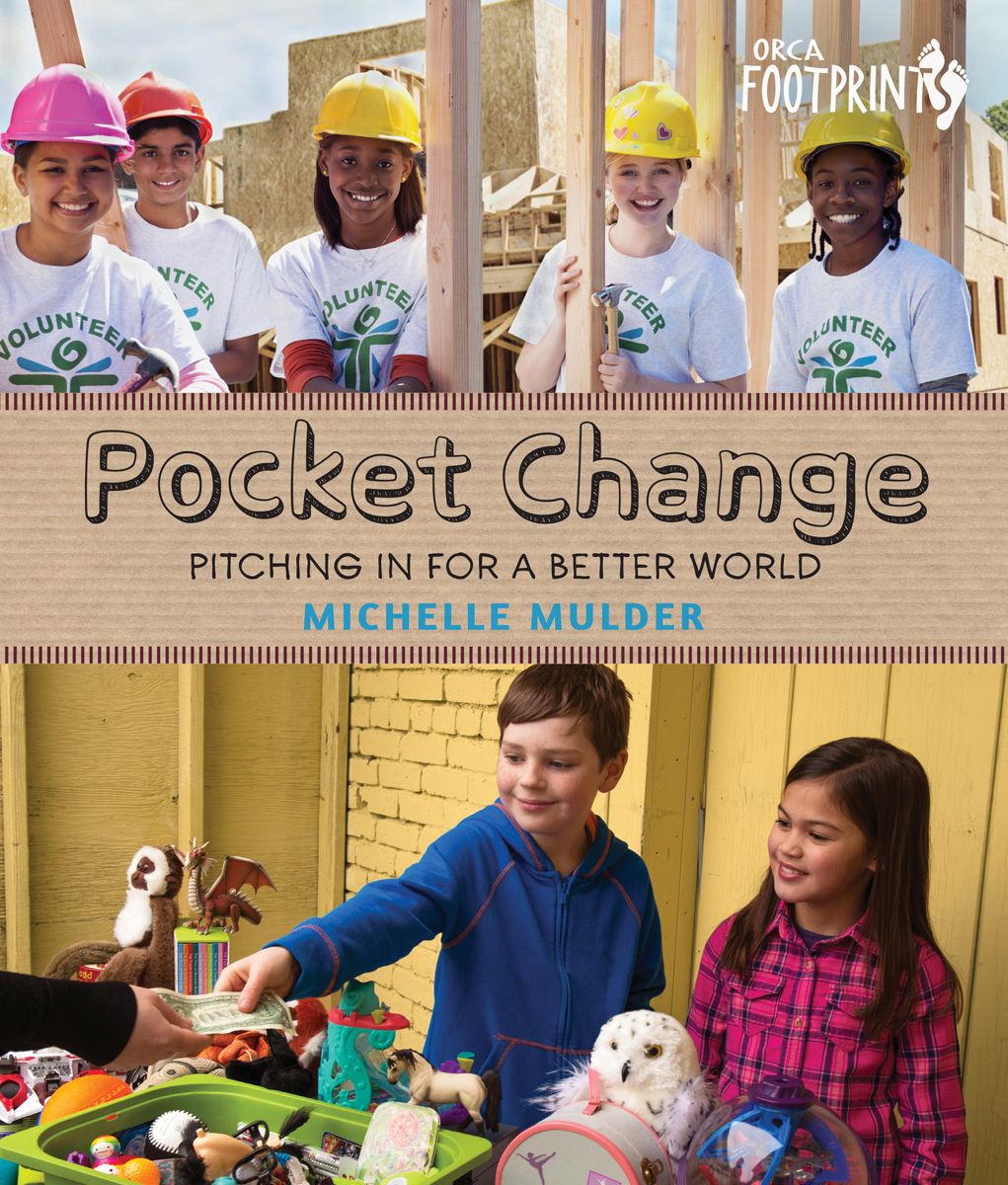#TuesdayTalk with Michelle Mulder. Her new middle grade nonfiction book, Pocket Change: Pitching In for a Better World, is on shelves now!
What was the catalyst for your story?
A few years ago, I was working on a book about waste and how people avoid creating it, or even use other people’s garbage to create wonderful, new things. As I wrote that book, I thought a lot about how what we buy affects the planet, and I started looking around for people committed to buying less. I loved the stories I came across, and that’s how the idea for Pocket Change was born. And yes, I fully realize the irony of selling a book about buying less stuff!
What was it like to see your story come alive visually?
The books in the Footprints series are all illustrated with photos, found by both the authors and the fine folks at Orca. In some ways, finding images for this book really stretched my imagination because the photos needed to illustrate very abstract concepts like “buying power” and “consumption”. The cover in particular was tricky, and the graphic designer, Jenn Playford, even did a special photo shoot to get one of the images. I’m thrilled with how the book looks!
What are the challenges of writing for or within a series?
Books in the Footprints series are all 48 pages, and writing that tight really makes me think hard about every word. I came across lots of stories that I would have loved to included but simply couldn’t because of space. On the other hand, writing within a certain number of pages means that the stories I picked really get to shine.
What was your favourite book as a child and why?
Like many Canadian kids, I loved Anne of Green Gables because it transported me to another time and place. I liked learning about a time period I would never experience first hand. Funnily enough, I NEVER read nonfiction as a kid because I all the information books I came across had really dense text, very few photos, and very little to spark my imagination. As a kid, I dreamed of writing novels, and when I grew up, I did so, but many of them were historically based, which meant that I needed to do a lot of research… reading nonfiction books. And I learned that information books for kids weren’t boring anymore. Soon I was gobbling them up and decided to try my hand at writing some.
In your opinion, what makes a compelling story?
For me, with information books, it’s all about voice and rapport. My favourite books are the ones where I feel like the narrator is having a conversation with me and is really excited to share all sorts of cool information s/he has learned about while researching.
Do you gravitate toward a certain genre or type of writing?
I still love novels. But I love information books now, too. Above all, I read kids’ books. There are so many great ones out there that I rarely make time to read books written for adults!
What types of conversations do you hope will come out of your book?
What inspired me most about the stories I included in Pocket Change was the idea that it can be lots of fun to solve economic problems! As a society, we often see lack of money as an insurmountable barrier to living the kinds of lives we want to live, and no doubt about it, we all need a certain amount of money to survive and thrive. But beyond that basic amount, life can often be a lot more fun if we forget about money and work together to solve problems by … well … working together!
 Michelle Mulder is the author of four other award-winning books in the Footprints series—Pedal It!, Brilliant!, Every Last Drop and Trash Talk—as well as the novels Not a Chance, Out of the Box, After Peaches and several other books for young people. For more information, visit www.michellemulder.com.
Michelle Mulder is the author of four other award-winning books in the Footprints series—Pedal It!, Brilliant!, Every Last Drop and Trash Talk—as well as the novels Not a Chance, Out of the Box, After Peaches and several other books for young people. For more information, visit www.michellemulder.com.

